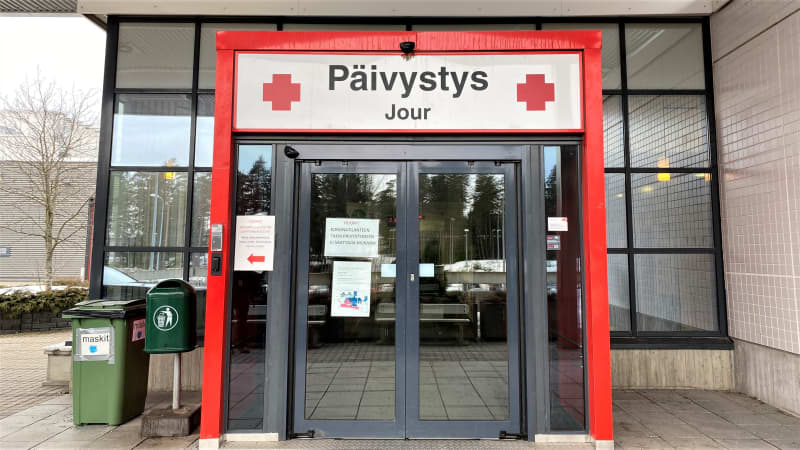
The new welfare areas have been operating for three months, but now, at least in Päijät-Hämee and North Karelia, a deep conflict of interest has emerged between the municipalities and the welfare areas.
Päijät-Häme’s dispute over salary arrears from the time of the former municipal union has taken new turns, when the municipalities reported their surplus financial statements this week.
Last year’s financial statements of Lahti reached more than 54 million plus. Despite that, the city did not record the salary arrears of the former welfare municipality association in its own financial statements.
Yle reported at the beginning of March that the former Päijät-Häme welfare municipality association has salary arrears of up to several tens of millions of euros. Salary arrears have arisen when the municipal corporation did not complete salary harmonization during its operation. Municipalities do not want to pay salaries.
The same situation is in North Karelia. Siun Sote was left with a bill of 24 million euros, which it does not intend to settle the amount from its own part. Juuka also made a surplus financial statement.
Instead, Joensuu has taken salary arrears into his account. Joensuu has set aside 10 million euros in its financial statements for salary harmonization debt. Municipalities therefore interpret legal articles differently.
In Päijät-Hämee, the management of the welfare area is upset. If the municipalities do not make a provision for salary arrears in their financial statements, it will affect the funding of the welfare area. The welfare area must adapt its operations with a corresponding amount, i.e. cut social and health services for the people of Päijäthämä.
On the other hand, if municipalities record salary receivables, it is removed from municipal services, schools and kindergartens. The councilors of the welfare area, who also sit on the municipal councils, have to make a painful decision: should the funding of the welfare area or the municipalities be cut?

Decision-makers sitting on two balls are in trouble
The financial statements of the municipal corporations that were hollowed out last year have now become the decision of the new welfare areas. In Päijät-Hämee, there is a provision of 20 million euros in the financial statements of the municipal corporation for salary harmonization. The share of the municipality’s largest owner, Lahti, is approximately EUR 12 million. Lahti has not recorded this amount in its own financial statements, so the financial statements do not match.
According to Talja, the salary harmonization should have been done on time, because the Päijät-Hämee welfare municipality association started its operations in 2017. In Päijät-Hämee, the salaries were harmonized, but according to the average salary. However, according to the current interpretation, salaries should have been harmonized according to the highest salary. The same salary must be paid for the same work.
– The salary harmonization should have been done in three years. This was not done, and now there is a risk that municipalities will have to pay salaries for three years retroactively. I consider this fair, says Talja.
According to Talja, it would be unfair that the new welfare areas would have to bear the responsibility for screwing up the former organization.
The Ministry of Finance was concerned
– In individual cases, we do not take a position on whether salary arrears belong to the municipalities, but the accounting instructions must be followed. In addition to municipal office holders and decision-makers, auditors also play a statutory role. It is their responsibility to check that the foundations of state shares are in order.
According to Ahonen, it is important that the right amount of costs is transferred from the municipalities to the welfare area. The costs of the war side should be fully transferred to the welfare area. It directly affects the funding of the welfare area.
– In the worst case, a possible missing cost can remain in the system for a long time, and it may never be corrected. In other words, it means that a sufficient amount of funding is not transferred to the welfare area.
Ahonen hopes that every place would still think about what the correct interpretation is.
Municipalities appeal to the law
– With the auditor, we have reviewed our interpretation and the method of processing it in the financial statements. The auditor did not think our solution was wrong, says Mörsky.
The city of Lahti has recorded the matter as a note to the financial statements. According to the city’s interpretation, the wage receivable is not yet due. Since there is no invoice yet, there is nothing to pay. And if there is one, it will come to a new welfare area, which in any case will have to accept the solution of the labor market parties in the wage dispute.
Mustonen says in the audio that the welfare area is not prepared to pay salary arrears if the municipalities don’t do it:
Welfare areas in an unequal position
– After all, it is a difficult situation to go to the welfare area to defend the welfare area’s point of view and the municipalities’ point of view, but there is no doubt that many might do this.
In Hildén’s opinion, the next government should intervene in the absurd situation. Although the salary harmonization was left unfinished, Päijät-Häme has spent a lot of money on unifying the social security area long before the national social security reform was implemented.
The same has been done by other welfare areas, where social security services have already been handled more broadly as a municipal corporation. Instead, the wage harmonization of completely new welfare areas is paid for by the state.
– Now the pioneers are being punished. This can be seen in these areas as debt, service cuts or tax increases. Those millions didn’t come from there by themselves, says Hildén.
Juha Mustonen, chairman of the board of the North Karelia welfare region, also hopes that the state will intervene.
– I hope that this would be resolved nationally and not so that every region is debating the same issue, and municipalities and welfare regions are at odds with each other.
This is precisely what Ville-Veikko Ahonen, the financial advisor of the Ministry of Finance, is watching with concern.
– Municipalities and welfare areas need each other so that they can solve common problems together related to the well-being of the area’s residents. If such disputes occur, it is really worrying for the whole country, says Ahonen.
*You can discuss the topic until Sunday 2 April 2023 at 11 pm.*
